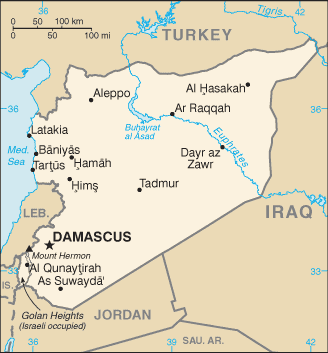As both Russia and the US escalate their respective wars in Syria, both nominally targeting ISIS primarily, they are each making much of their arms shipments to their allies in the nation, insisting those new influxes of arms will shift the long-stalled civil war in their favor.
 Yet increasingly in both cases, those arms shipments are including not only some ammunition and small arms useful for the drawn-out ground war, but anti-aircraft weapons which are of primary utility in targeting one another’s airplanes, adding to the evidence that the US and Russia are steaming headlong into a full-scale proxy war against one another in Syria.
Yet increasingly in both cases, those arms shipments are including not only some ammunition and small arms useful for the drawn-out ground war, but anti-aircraft weapons which are of primary utility in targeting one another’s airplanes, adding to the evidence that the US and Russia are steaming headlong into a full-scale proxy war against one another in Syria.
Both the Syrian government and the pro-US rebels are finding themselves recipients of growing amounts of anti-aircraft weapons, and at the behest of Turkey the US is also rushing F-15C fighter planes into Syrian airspace. F-15C planes are only useful against other planes, and the air war is nominally only against ISIS, who has no planes.
Such deployment would make no sense, except it comes amid Turkish threats to shoot down Russian planes. Russia, likewise, seems to be getting more anti-aircraft rocket systems into the hands of the Syrian government, even though they aren’t at war with anyone with planes.
At least not right now. The US deployments seem to anticipate an air war with Russia, while the Russian deployments anticipate the US coalition launching an air war against Syria’s government. It is a war both sides insist publicly they’re trying to avoid, but which only cursory steps are being taken to prevent.
As with the endless tit-for-tat escalations in Eastern Europe, the Cold War mentality seems to be alive and well in Syria, with both nations paying much less attention to the situation in Syria itself than to what the results will mean to their respective influence in the region.


